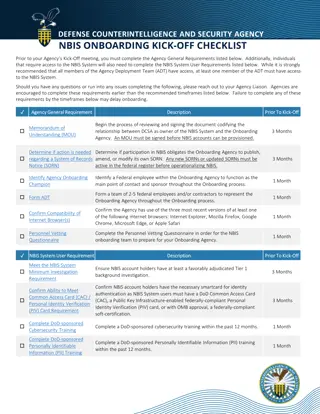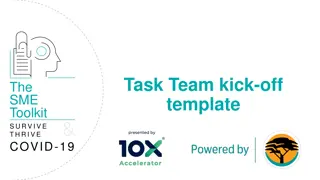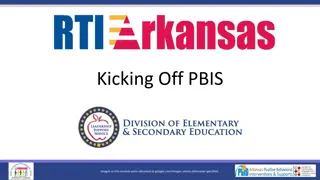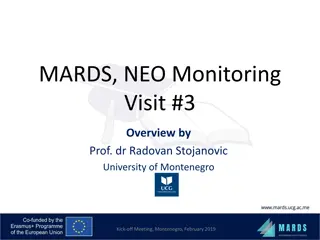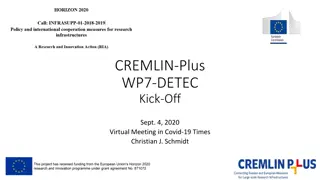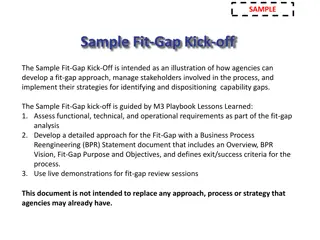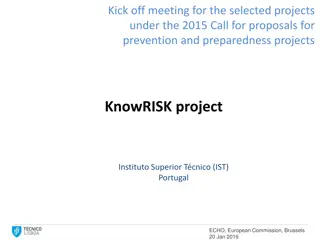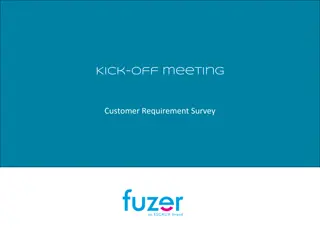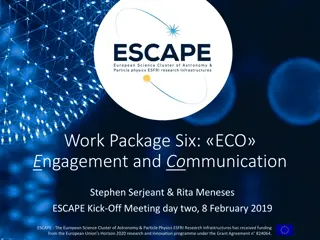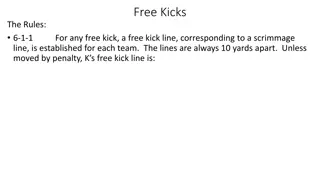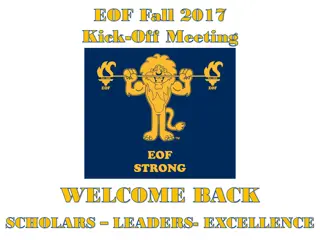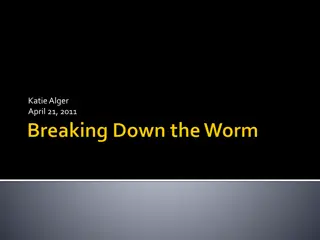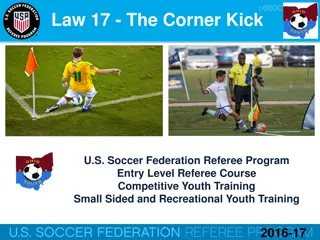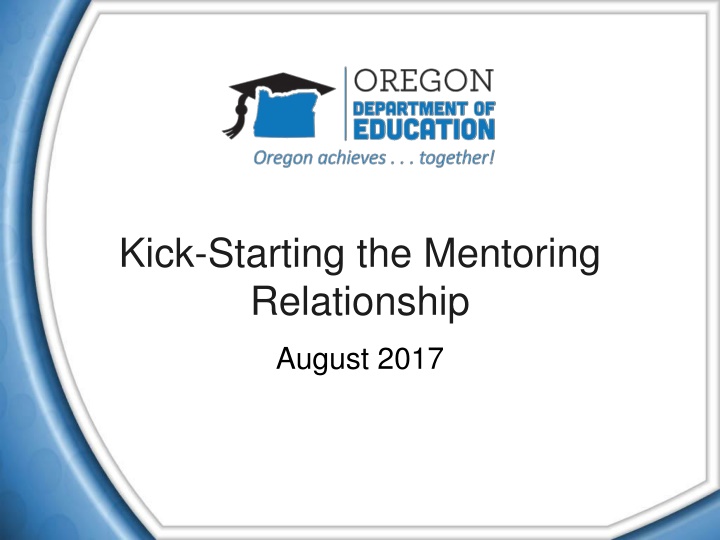
Building Trust in Mentoring Relationships: Key Elements and Strategies
Learn about the importance of trust in mentoring relationships and discover strategies to establish and maintain trust with your mentee. Explore attributes of trust and compare different trust-building approaches to enhance your mentoring skills effectively.
Download Presentation

Please find below an Image/Link to download the presentation.
The content on the website is provided AS IS for your information and personal use only. It may not be sold, licensed, or shared on other websites without obtaining consent from the author. If you encounter any issues during the download, it is possible that the publisher has removed the file from their server.
You are allowed to download the files provided on this website for personal or commercial use, subject to the condition that they are used lawfully. All files are the property of their respective owners.
The content on the website is provided AS IS for your information and personal use only. It may not be sold, licensed, or shared on other websites without obtaining consent from the author.
E N D
Presentation Transcript
Kick-Starting the Mentoring Relationship August 2017
Objectives Determine important elements for building and maintaining trust. Understand the role and responsibility of mentor and how to effectively launch your first meetings. Familiarize yourself with the Collaborative Discussion Guide (CDG)
Agenda Introduction, Objectives, and Norms Foundational Skills/Strategies/Tools Attributes of Trust Entry Conversations Collaborative Discussion Guide and Facilitative Language Summarize and Reflect
Foundational Skills/Strategies/Tools Attributes of Trust
Importance of Trust The role of a coach is granted by the coachee based on trust. Without trust there can be no coaching. Trust will always be at stake during the process of coaching. The trust can increase and become more solid, and it can be taken away. It can be initially gained, then lost, and afterwards recovered. Or it can be lost for good. The coach always moves along the thin cord of the coachee s trust. To take for granted the coachee s trust is one of the big mistakes a coach can make.
Trust Attributes Think of someone such as a supervisor, mentor, or colleague that you really trusted. Individually, write down attributes of the individual that supported the establishment of trust. Group share out.
The Four Elements of Trust Read the article The Four Elements of Trust. Highlight key attributes outlined in the article. Whole group share attributes from article.
Compare/Contrast Activity Whole group Compare and contrast on Venn Diagram from: The list participants generated from trust attributes discussion. The highlighted attributes from The Four Elements article.
Reflection Activity Individually reflect on: how you might broach the conversation of trust with your mentee or use this article. Write down your thoughts. Find a new sharing partner in room and exchange ideas.
Foundational Skills/Strategies/Tools Entry Conversations
Roles Think abut how the role of principal is different from the role of a mentor. Turn and talk with a neighbor about the differences in these two roles. Whole group discussion.
Entry Conversations Protocol Review Entry Conversations Protocol How might this be used with your mentee? Questions
Getting To Know You Tool Review Getting To Know You Tool What other questions might be important to ask? Questions
Foundational Skills/Strategies/Tools Collaborative Discussion Guide (CDG) and Facilitative Language
Collaborative Discussion Guide (CDG) Guides/focuses weekly conversations Aligns with Oregon Educational Leadership/Administrator Standards Comprised of 4 boxes Recent Successes Today s Focus Mentee s Next Steps Support Needed From Mentor
Collaborative Discussion Guide (CDG) Review Collaborative Discussion Guide (CDG) Discuss tool with a elbow partner Questions?
Facilitative Coaching Builds on mentee s current skills and knowledge Collaborative in nature Builds mentee s reflective skills and leadership practices
Facilitative Coaching Review the Five Moves in Facilitative Coaching Highlight 4-5 question stems you would like to try/practice. Practice using the Five Moves in Facilitative Coaching with a partner Switch roles and repeat.
Debrief Practice Activity How do you feel your facilitative coaching practice went? What are the implications for your mentoring practice as you move forward? How did using the CDG help guide the conversation? How did pausing to ask facilitative questions affect your conversation?
Summarize and Reflect Write down 2-3 key takeaways/new learning What are my next steps in preparing for my first/next meeting with my mentee? Turn and talk with your neighbor.

